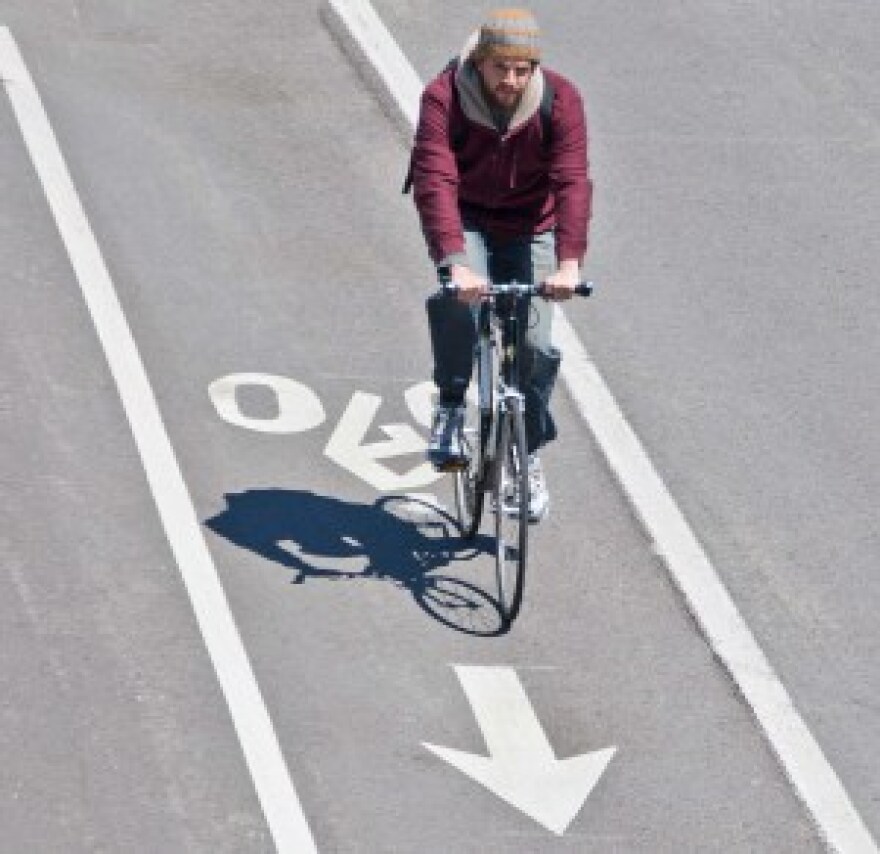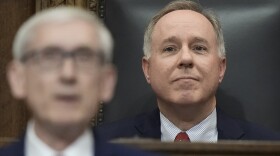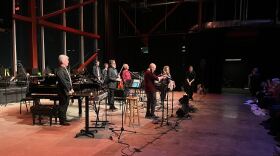Wisconsin was one of the first states in the country to adopt Complete Streets, a program that factors bicyclists and pedestrians into road projects. Under Gov. Walker’s budget, it would be eliminated.
The Wisconsin Bike Fed, or WBF, says the move would take the state in the wrong direction.
WBF executive director Dave Cieslewicz says Complete Streets can be seen along rural roadways in the form of paved shoulders. They not only give bikers a safe, designated lane but, Cieslewicz says, paved shoulders are also good for the road.
“They tend to deteriorate from the edges in, so having a paved shoulder increases the life of the travel lane. It’s also good for drivers because if you’re in an emergency and have to pull off, it’s safer pulling off onto pavement rather than gravel,” he says.

In cities, Complete Streets’ funding helps finance bike lanes and other treatments that makes it safer for bikers.
Cieslewicz says it’s also good for drivers as well. “The biggest complaint we hear from drivers is cyclists weaving in and out, or cyclists being in a place they don’t expect them to be. This is about defined space for bicyclists. Bicyclists are supposed to be here, drivers are supposed to be here – when people know where they belong on the roadway, it makes everybody safer,” he says.
Complete Streets represents less than a fraction of Wisconsin’s transportation budget. “The latest Legislative Fiscal Bureau estimate of the cost of Complete Streets is about $190,000 a year, versus $3.3 billion, seems like a good investment to me,” he says.

Cieslewicz points to 2nd Street in Milwaukee’s Walker's Point as an example of a Complete Streets’ success story.
He believes the bike lanes help neighborhood businesses. “When you build an environment that’s safe and pleasant to bike in, you’re probably building an environment that’s pretty pleasant to be in," he says. "You see businesses pop up around that; it attracts people to come and live there, to start their businesses and work there. There are all kinds of benefits to Complete Streets that actually accrue to people who would never get on a bicycle."
Cieslewicz's concerns go beyond the transportation budget. The proposed state budget would put a 13-year freeze on the Knowles-Nelson Stewardship Fund.
A bipartisan effort created it in 1990.
Cieslewicz says of the more than 600,000 acres conserved through Knowles-Nelson “about thirty trails have been expanded or improved. The governor would zero out that program at a time when these trails are becoming more and more important,” he says.
Cieslewicz acknowledges that friction existing between drivers and bicyclists fuel some of the pushback against funding. “We spend a lot of effort trying to defuse that tension and I feel things are moving in the direction. The irony is that folks are on one hand are unhappy with cyclists are defunding programs that actually would defuse some of the behavior they don’t like,” he says.
Cieslewicz is also concerned about a possible bike fee that popped up recently to tax the sales of bicycles at the point of purchase. "So every time you buy a bicycle at a bike shop you’d be charged $25. Really this has been proposed with no warning, with no study,” he adds.
Every year the League of American Bicyclists ranks states for their bike friendliness.
Cieslewicz says Wisconsin's ranking dropped from #3 to #9. “Wisconsin used to lead the Midwest, and the nation for a while, in the miles of bicycle trails. We’ve now been passed up by both Minnesota and Michigan,” he says.
Cieslewicz believes the state’s proposed budget will push Wisconsin even further behind. “This is definitely a threat to our tourism industry,” he says.
The Joint Finance Committee has yet to take up the transportation budget, of which bicycle and pedestrian projects are a part, as well as proposed freezing of the Knowles-Nelson Stewardship Fund.
Note - Since our interview with Cieslewicz, Lake Effect learned the $25 fee is still in the air; however, it looks as though the money would be funneled into bicycle projects rather than into the general transportation fund.








